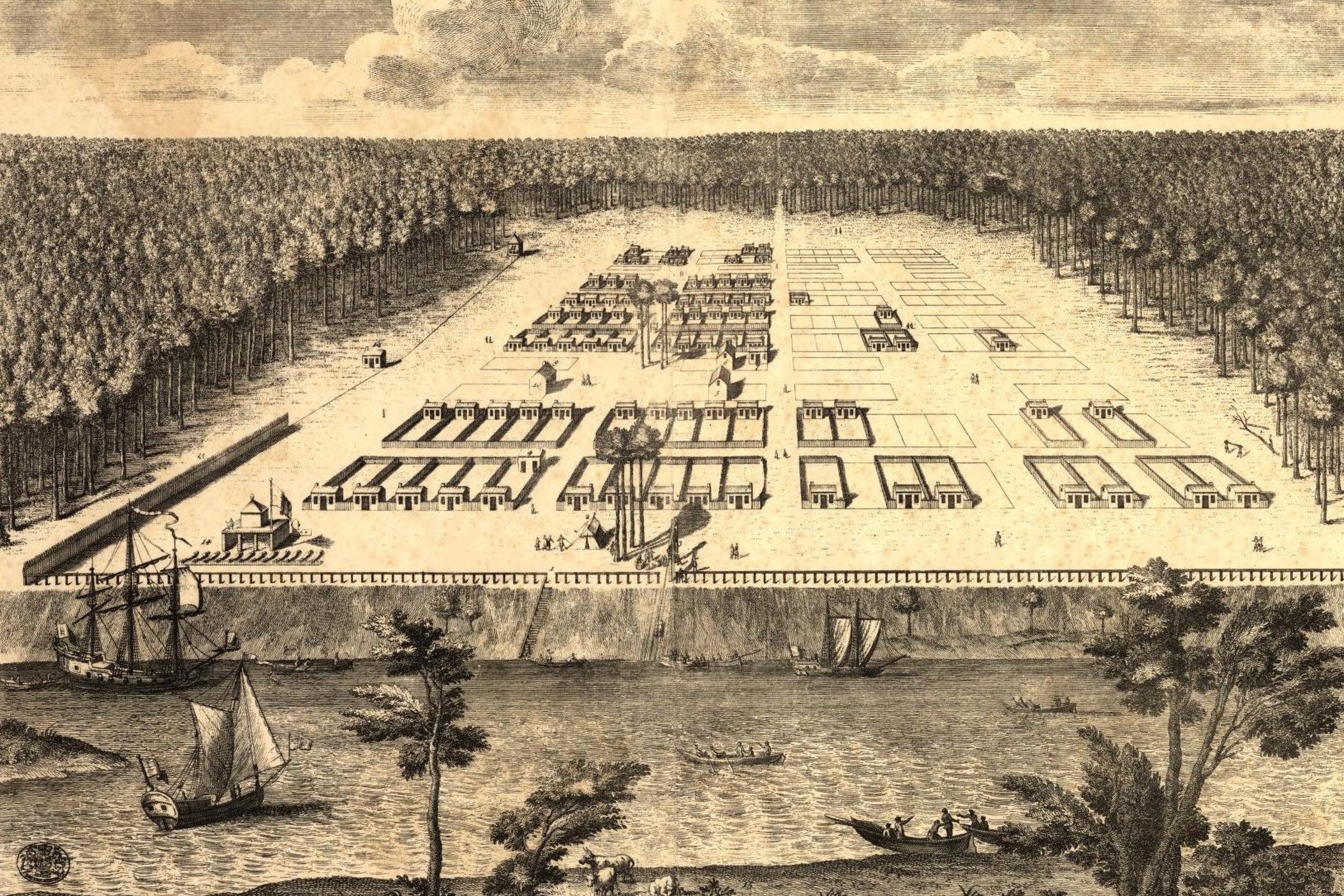Section Branding
Header Content
A historic town square in Savannah may soon get a new namesake. Learn about some of the nominees
Primary Content
The Savannah City Council is expected to vote Thursday night on a new name for the former Calhoun Square, one of the city's 22 iconic greenspaces that dot the Downtown Historic District.
The roughly 1-acre public lot near Forsyth Park has been without an official moniker since November 2022, when City Council voted unanimously to remove former Vice President John C. Calhoun's name, citing his staunch support for slavery.
The apparent frontrunner for the square's new namesake — judging by past statements of support from councilmembers — is Susie King Taylor, a Black woman born into slavery near Savannah who went on to serve as a Union Army nurse during the Civil War.
Who are some of the other nominees?
For this, GPB's Orlando Montoya spoke with our Savannah-based reporter, Benjamin Payne, who has been following this story for months.
Orlando Montoya: You attended a recent public meeting where citizens shared the historical figures they hope to see the town square named after. Tell us more about that.
Benjamin Payne: That's right. This was a meeting of the Historic Site and Monument Commission in Savannah. The meeting ran over three hours long, so I'm not going to have time to talk about all of the nominees. But I do want to share three lesser-known ones who were discussed.
First off: Maj. Clayton Carpenter. He was an Army helicopter pilot who tragically died while flying a training exercise at Hunter Army Airfield in Savannah. This was back in 2014, so Carpenter's memory is still very much alive in the minds of his comrades, including Jon Ternstrom, a soldier who was riding with Carpenter in the helicopter that crashed.
Ternstrom nominated him to be the namesake of the town square. Here's what he had to say:
Jon Ternstrom: I acknowledge that there are people who feel that a soldier who dies while serving their country is simply doing their job and should not be recognized. I know there are people who don't think that soldiers are not really a part of this community. While I do not agree with that, they are allowed to have this opinion because of the soldiers like Maj. Carpenter who have died to guarantee their freedoms.
Benjamin Payne: Ternstrom credits Maj. Carpenter with saving his life by cutting the engine's power in such a way that saved the crew, at the expense of Carpenter's own life.
Orlando Montoya: So Maj. Carpenter is one of the more modern-day figures being considered for this square. I understand you also want to tell us about a nominee from a much more further back time in Savannah's history.
Benjamin Payne: That's right. Another potential name for the town square is Creek Square, as in the Lower Creek tribe of Native Americans. They are among the original inhabitants of the land that later became known as Savannah, when the British colonized Georgia in the 1700s.
The name Creek Square was nominated by Savannah resident Angel Brayboy, [who had this to say at the meeting] about the tribe, compared to John C. Calhoun:
Angel Brayboy: I do think that if we are going to take the square from someone who was a bigot, a segregationist, and someone who simply wasn't born and raised here, the least we could do is give it back to the people that it rightfully belongs to. And that is the people of the Creek nation and the other tribes within that nation.
Benjamin Payne: Brayboy wrote in her application that naming the square after the Lower Creek tribe would serve as a “welcome back” symbol for Indigenous people who may be hesitant to live in Savannah again.
Orlando Montoya: And who is the last nominee for the town square that you'd like to share with us?
Benjamin Payne: That would be Robert Abbott. He was the founder and publisher of The Chicago Defender. For much of the 1900s, the Defender was a hugely influential Black newspaper that advocated for civil rights. And listeners might be thinking, ‘Okay, well what does the Chicago Defender have to do with Savannah?’ Well, Abbott grew up in Savannah. He was born on St. Simons Island further down the Georgia coast, but spent his childhood learning the newspaper trade from his stepfather [John Sengstacke].
Savannah resident Martha Keber nominated Abott to be the namesake of the town square, saying at the meeting:
Martha Keber: He used the Defender as a way to fight injustice, whether found in the courts or the lynch mob. Abbott engaged his readers with screaming red headlines and graphic eyewitness accounts. And, he offered solutions — Robert Abbott took to heart his stepfather's strong belief that a newspaper was the most important weapon for an oppressed people.
Benjamin Payne: Keber also said that it used to be illegal in Georgia to possess a copy of the Chicago Defender, but that nevertheless, Abbott's newspaper found its way to many Black churches throughout Georgia.
Orlando Montoya: What's next in the renaming process for the former Calhoun Square?
Benjamin Payne: Well, Savannah City Council is scheduled to take up the matter on Thursday night. There's bound to be a lot of public comment, since more than a dozen potential nominees are being considered for the new namesake. Councilmembers could table this for further discussion, but at this point it seems more likely that they'll put it to a vote and decide on a new name for the former Calhoun Square.


